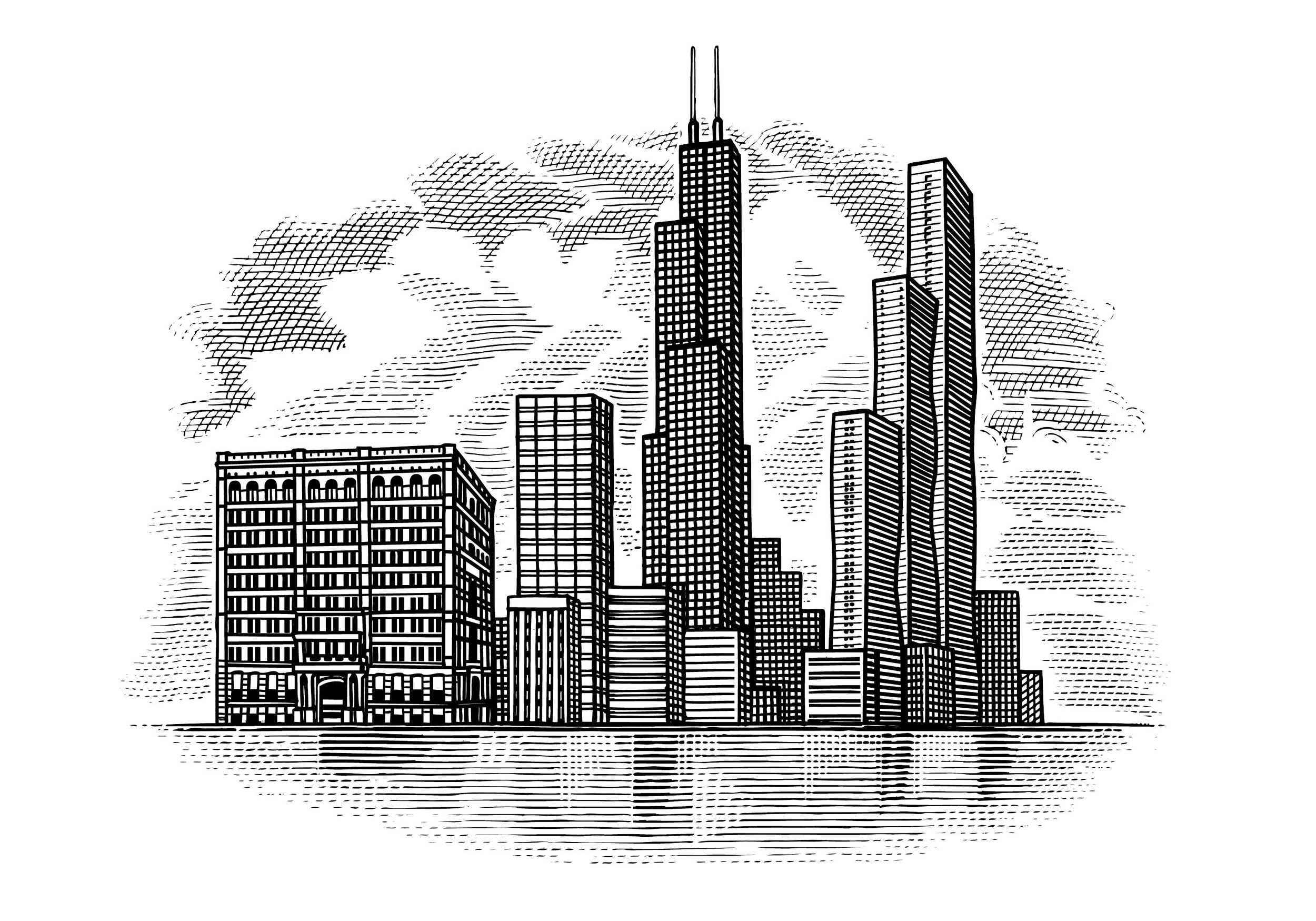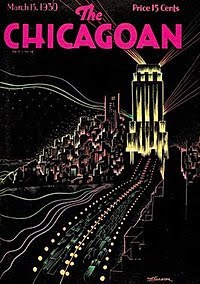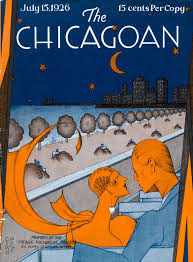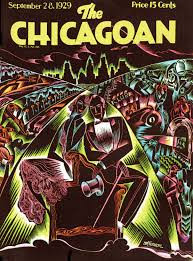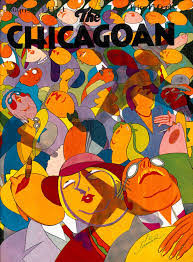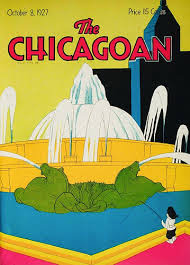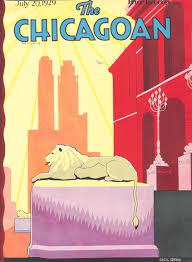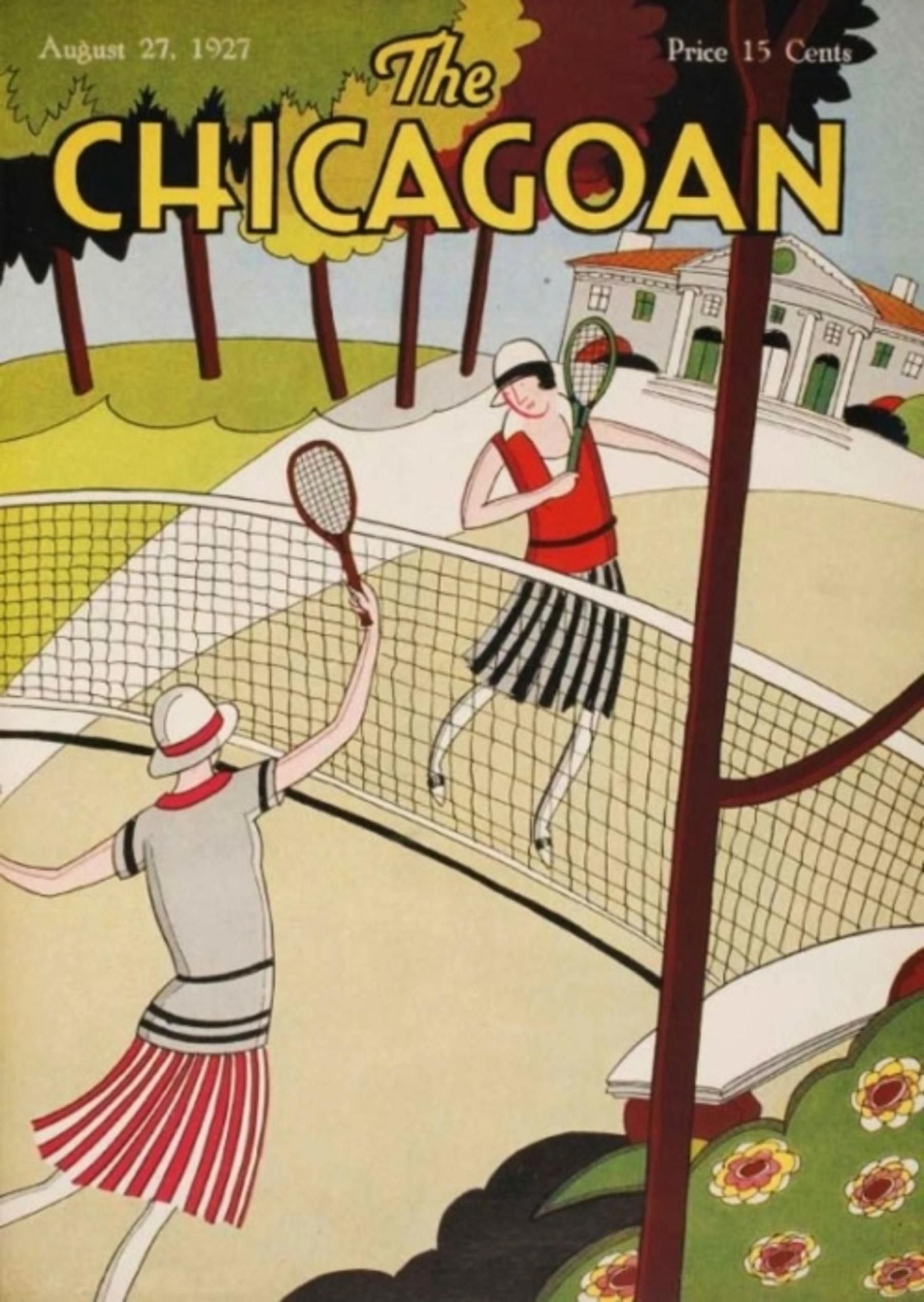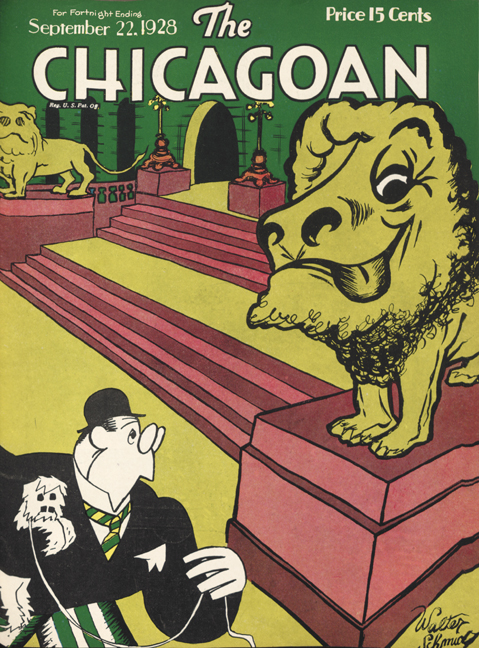Culture: Chicago Needs the Chicagoan
Chicago needs The Chicagoan. Not the Chicago native, for which Chicagoan is the demonym. Despite the city’s shrinking population they are safe for now. Chicago needs The Chicagoan Magazine, the city’s one-time response to The New Yorker in the 1920s and 1930s.
The Chicagoan was published between 1926 and 1935 and was the Midwestern cousin of the New Yorker. Its covers epitomized art deco; its content was, supposedly, the cream of the crop of what Chicago’s culture had to offer. Its original publisher, Martin J. Quigley, wanted it to encapsulate the essence of city, as long as it was upper crust.
In 1935 the magazine folded and was largely forgotten about, until it was briefly resurrected by J.C. Gabel in 2011. The first issue was 194 pages and cost $20. The revival (which despite its length and cost was extremely well done — I had a copy of it) lasted for all of one issue. Gabel’s vision was bold and his Chicagoan would have been more of a journal or collection than a magazine. But it was never able to put out a second edition and the revival folded and faded just as the original did.
In 2015 the magazine attempted a second comeback — kind of. Joe Coughlin of North Shore-based 22 Century Media launched Chicagoly Magazine, where I was a two-time contributor, in December 2015. Chicagoly began its life as The Chicagoan but changed its name before the first issue was printed to avoid the baggage and legacy that “The Chicagoan Magazine” would have carried with it. Chicagoly was a quarterly publication, and so only published a handful of times per year.
The magazine abruptly folded in early 2018 after just nine issues. In it’s short time it managed to win one Peter Lisagor award, which is a pretty big achievement for an upstart publication that never quite found its footing. Ultimately, the same thing sunk Chicagoly that sunk Gabel’s Chicagoan: money and interest, or lack thereof.
But perhaps the biggest obstacle to a potential third revival is that, for many, there is no clear answer to the question of why? Chicago seems to have all of it’s bases covered: there are still two daily newspapers with very different audiences and focuses; there are a lot of magazines that cover almost every neighborhood; there is even a comeback in neighborhood-level reporting in the soon-to-launch Block Club Chicago.
And then there is Chicago Magazine. Chicago Magazine is arguably more of a lifestyle publication than anything else, but it does occasionally make attempts to branch out into more in-depth cultural reporting. But generally it tends to focus on food and dining, the arts, city politics, and real estate (of course).
When the magazine does invest in quality journalism it tends to turn out well; there is a reason Chicago Magazine is the premier magazine in the city. But the occasional foray into cultural reporting is no substitute for a dedicated focus on the subject. What really keeps the magazine’s base coming back is the fact that it caters to the upper crust of Chicago and those who wish they were part of it. Not many of the magazine’s features will resonate with people outside the Gold Coast and the wealthy suburbs.
Chicago Magazine is a good magazine, but ultimately it lacks depth at its core. There is no poetry from unknown authors, no short stories, no satire, no book reviews, little to no long form journalism, and very few articles about the cultural ebb and flow of the Midwest. And, importantly, it does little to examine what underpins Chicago’s position as the cultural epicenter of the region. Someone who is unfamiliar with or apathetic towards the wealthy parts of the city gets nothing from Chicago Magazine. At the end of the day, how many people will really resonate with an article about inclusive cocktails?
This isn’t to knock on Chicago Mag. I have renewed my subscription a number of times. Like a lot of people, I actually enjoy reading arbitrary lists of the city’s best bars, or the hot list of the city’s restaurants, or what B-list celebrity is selling their penthouse off Lake Shore Drive. It’s fun reading, and it gives you a way to pretend that you’re part of the one percent for a weekend.
But my criticism of the magazine is meant to point out that despite the two daily papers, despite local reporting, and despite a cultural/lifestyle magazine with a respectable subscription base, there is still room in the market for The Chicagoan.
The Chicagoan can carve out a space for itself in the areas where Chicago Magazine falls short. Satire, fiction, long form nonfiction, long form reporting, poetry, and big picture, high impact cultural pieces would be its mainstay. I think J.C. Gabel was on the right track. But perhaps he bit off more than he could chew.
Another lesson to take from Gabel’s and Coughlin's folded ventures is that a successful revival of the Chicagoan should perhaps be an actual magazine akin to… the New Yorker.
The New Yorker is a weekly publication, which if you have ever been subscribed to it is an amazing feat of quality and output that sacrifices nothing. The New Yorker has never rested on its laurels; one issue last year (September 18, 2017) had a feature length story on North Korea, as well as a feature length story on Vampire Weekend co-founder Rostam Batmanglij’s debut solo album, a piece on the economics of the opioid crisis, and all the literature reviews The New Yorker is known for. When was the last time a publication in Chicago put out even one issue of anything of that caliber?
The new Chicagoan Magazine should take a page from the New Yorker’s playbook and be a weekly publication. Chicago as a city is certainly big enough to handle that kind of production schedule, and as a region Chicagoland and the greater Midwest has more than enough talent to staff a weekly magazine. The challenge, perhaps, is finding the money to pay that talent.
But if that can be overcome, if the funding gap can be closed, The Chicagoan can be to the Midwest what The New Yorker is to essentially everything else: a showcase of Midwest and American culture through a distinctly Chicago lens. It should be a resource valuable to everyone who picks it up and it should add knowledge to the body politic of life between the coasts.
Chicago needs The Chicagoan. The question now is, who is bold enough to get it started?
